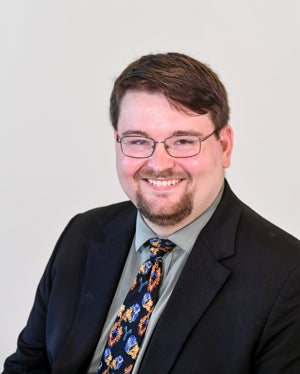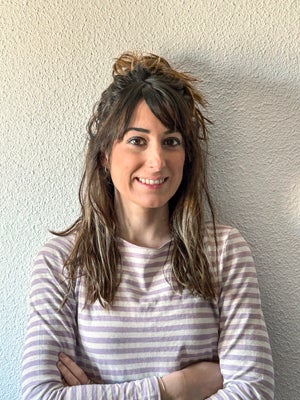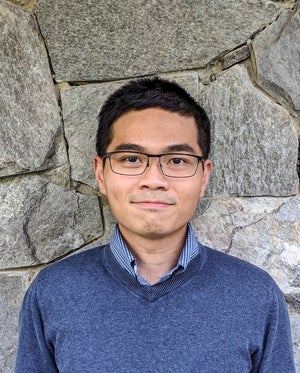Personalizing Immunotherapy to Treat Tumors Wins Prize

For his work developing an individually tailored, cell-specific approach to treating cancer by combining drug treatments with immune-response therapeutics, Aleksandar Obradovic is the grand prize winner of the 2023 Michelson Philanthropies & Science Prize for Immunology.
Obradovic’s essay details his work harnessing the anti-tumor immune response with tailored cancer immunotherapy. These therapies are combined with traditional cancer drugs as informed by two algorithms his team developed, one that infers protein activity and another that predicts drug sensitivity, which utilize single-cell RNA sequencing data to identify groups of cells associated with cancer treatment resistance in different tumor types.
“The Science editors and judges were exceedingly impressed with Aleksandar’s cutting-edge work, which has important implications well beyond its original focus on cancer immunotherapy. Moreover, we found his essay tremendously compelling, as he highlighted his accomplishments in an exciting and very accessible way,” said Seth Thomas Scanlon, senior editor at Science.
Intrigued by the initial concept of immune therapy as a cancer treatment, Obradovic and his colleagues in the department of systems biology at Columbia University Irving Medical Center developed these tools to identify predictive immune characteristics of patients who respond well to treatment as compared to those who do not. Additionally, their approach could help to identify how the effects of different therapies on immune characteristics may point to broader trends, including why some therapy combinations have worked better than others.
Personalizing Cancer Treatment
Obradovic noted that while traditional approaches to treating cancer have focused on an increasingly sophisticated arsenal of drugs targeted against various mechanisms of tumor cell growth, immunotherapy represents a paradigm shift by activating anti-tumor immune responses broadly and independently of tumor growth mechanisms. Nonetheless, many patients do not respond to immunotherapy, and therapy failure is difficult to predict, motivating Obradovic’s approach detailed in his prize-winning research.
This approach takes advantage of recent innovations in single-cell RNA sequencing, where gene expression is captured from the individual cells of a tumor, including the immune cells. However, this technique misses a large fraction of genes.
To remedy this, the researchers use the network-building algorithm ARACNe that discovers what target genes are associated with every activated protein. Their algorithm VIPER then uses those discoveries to infer how active every protein is based on the expression of their targets, which helps to find druggable protein targets. “With the high levels of missing data in single-cell RNA sequencing experiments, this is like solving a crossword puzzle. ARACNe is the dictionary that tells us which letters go with which words, and VIPER is the puzzle-solver, finding the right words even when most of the letters are missing,” Obradovic explained.
He also noted that since this research has discovered resistance mechanisms and candidate therapeutic targets across numerous tumor types, it also represents an opportunity to tailor precise combinations of complementary drugs for patients who do not respond to current immunological treatments for other conditions beyond cancer.
“Taken together, the analytical and experimental tools comprising my research work represent an opportunity to tailor future immunotherapies at the single-cell level,” Obradovic said. “In principle this can be extended even beyond cancer treatment to identify drugs with complementary immune effects across any number of medical contexts — even including the efficacy of vaccines.”
Power of Immunotherapy
Recently, cancer treatments have been moving toward more personalized and targeted approaches. Individual mutations and other biomarkers have been used to guide the choice of one treatment over another, but biomarkers for immunotherapy remain crude, and often exclude many patients who might otherwise benefit.
This is why a deeper understanding of the effects that both immunotherapy and conventional therapies exert on the immune microenvironment is needed, Obradovic noted, to find more precise, rational combinations of complementary drugs.
“Whether we understand them fully yet or not, these drugs all have an effect on the immune cells inside of a tumor in addition to whatever their intended effect may be on the tumor cells themselves,” Obradovic said.
Additionally, tailored combination therapies and immune effects of cancer drugs have been difficult to study. This is because preclinical cancer drug testing has traditionally been done in immune-deficient mouse models, assessing only drug toxicity against tumor cells, with no testing for effects on the immune system prior to large-scale clinical trials.
Obradovic’s greatest hope for the future of his research is to translate predicted drug combination discoveries back to the design of new clinical trials and patient care. He also plans to study and integrate the immune effects of radiation therapy into his approach for prediction of optimal combination therapies.
“Cancer care is dynamic and rapidly evolving, and it has been inspirational to contribute towards that evolution, but even more so it has been inspirational to see the real impact changing treatments are having on the lives of patients and their families,” Obradovic said.
The Award
The Michelson Philanthropies & Science Prize for Immunology focuses on transformative research in human immunology, with trans-disease applications to accelerate vaccine and immunotherapeutic discovery. This international prize is intended to encourage and support young investigators from a wide range of disciplines, including computer science, artificial intelligence/machine learning, protein engineering, nanotechnology, genomics, parasitology and tropical medicine, neurodegenerative diseases, and gene editing, who apply their expertise to perform research that has a lasting impact on vaccine and immunotherapy.
“No field of medical research has more potential to transform the trajectory of human health care than does immunology,” said Gary K. Michelson, founder and co-chair of Michelson Philanthropies and the Michelson Medical Research Foundation. “We established the Michelson Philanthropies & Science Prize for Immunology in partnership with the American Association for the Advancement of Science to support brilliant and imaginative early-career researchers, so they can revolutionize the field of immunology.”
2023 Finalists
Roser Vento-Tormo is a finalist for her essay “Decoding foreign antigen tolerance: Cell atlases of human tolerogenic milieus guide transformative immunotherapies.” Vento-Tormo received a B.S. from the Polytechnic University of Valencia and a Ph.D. from the University of Barcelona. After completing her postdoctoral fellowship at the Wellcome Sanger Institute, Vento-Tormo started her laboratory there in the cellular genetics program in 2019. Her research focuses on understanding how cell-cell communication and the tissue microenvironment regulate cell identity and function in the context of immunity and development.
Joshua Tan is a finalist for his essay “Searching for common ground: The conserved coronavirus fusion peptide is a target of broadly neutralizing antibodies.” Tan received his B.S. from Monash University and a Ph.D. from the University of Oxford. After his postdoctoral fellowship — jointly performed at the Institute for Research in Biomedicine, Bellinzona; the University of Oxford; and the National Institutes of Health — he started his laboratory at the NIH in 2020. His research focuses on understanding the human antibody response to infectious pathogens — including Plasmodium falciparum, severe respiratory SARS-CoV-2, and Mycobacterium tuberculosis — through the study of monoclonal antibodies.





